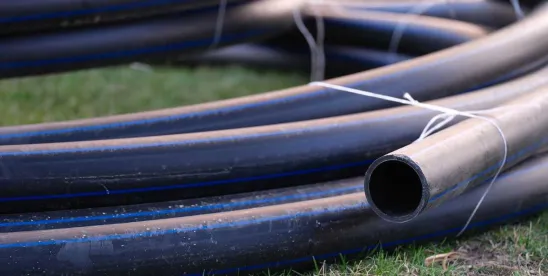In litigation underlying Satcher v. Columbia County, 2024 WL 3802370 (Ga. Aug. 13, 2024), property owners sued the County related to damage caused by their privately-owned 48-inch pipe that had been used as part of the County’s stormwater drainage system for decades. The trial court determined that the pipe constituted either “a continuing, abatable nuisance” that rose to the level of a taking or, alternatively, that the County obtained an easement in the pipe by adverse possession and was liable for the damage caused. The trial court awarded the property owners damages based on their repair costs to the property, interest paid on a loan to fund the repaid costs, and bad-faith attorneys’ fees under O.C.G.A. § 13-6-11. The trial court also enjoined the County “from maintaining a defective storm water drainage system that causes damage to Plaintiffs’ property.”
The Georgia Court of Appeals reversed in part, finding that the County did not acquire a prescriptive easement in the pipe because there was no evidence that the County asserted a claim of right to the pipe and because a trespass “can never ripen into prescriptive title.” See Columbia County v. Satcher, 369 Ga. App. 608, 616, 894 S.E.2d 181, 189 (2023). The Court of Appeals also reversed the damages award because: (i) costs of repair may only be considered as a factor in determining in determining the reduced fair market value of the property in an inverse condemnation case – the proper measure of damages; and (ii) the damages arose from incidents that occurred after the property owners sent the County their ante litem notice. See id. at 617. However, the Court of Appeals did not reverse the grant of the injunction, with the rationale that it would not disturb an injunction absent a “manifest abuse of discretion.” Id. at 619.
This left the Georgia Supreme Court to assess whether the scope of the injunction was proper. The County took the position that the scope of the injunction exceeded its waiver of sovereign immunity. The Supreme Court agreed with the County, holding that the Georgia Constitution’s requirement that “just and adequate compensation being first paid” when property is taken or damaged only waives sovereign immunity to authorize an injunction that requires the County “to stop the taking or damaging until such time as the authority fulfills its legal obligations”, i.e. payment. The case was remanded with the instruction that the trial court consider the issuance of a new injunction that does not exceed the scope of the waiver.
The practical import of this case when involved in nuisance litigation with the State of Georgia or any one of its departments or agencies, such as one of the 159 counties, is that a plaintiff should not overshoot on the scope of the injunctive relief it seeks. Doing so can increase the time and cost of litigation as that issue is appealed. Satcher is also a reminder to ensure that the appropriate measure of damages is understood early in a case so that appropriate evidence on valuation is developed and that the attorneys involved need to be aware of the rules and time restrictions around providing ante litem notice to a governmental entity.




 />i
/>i

